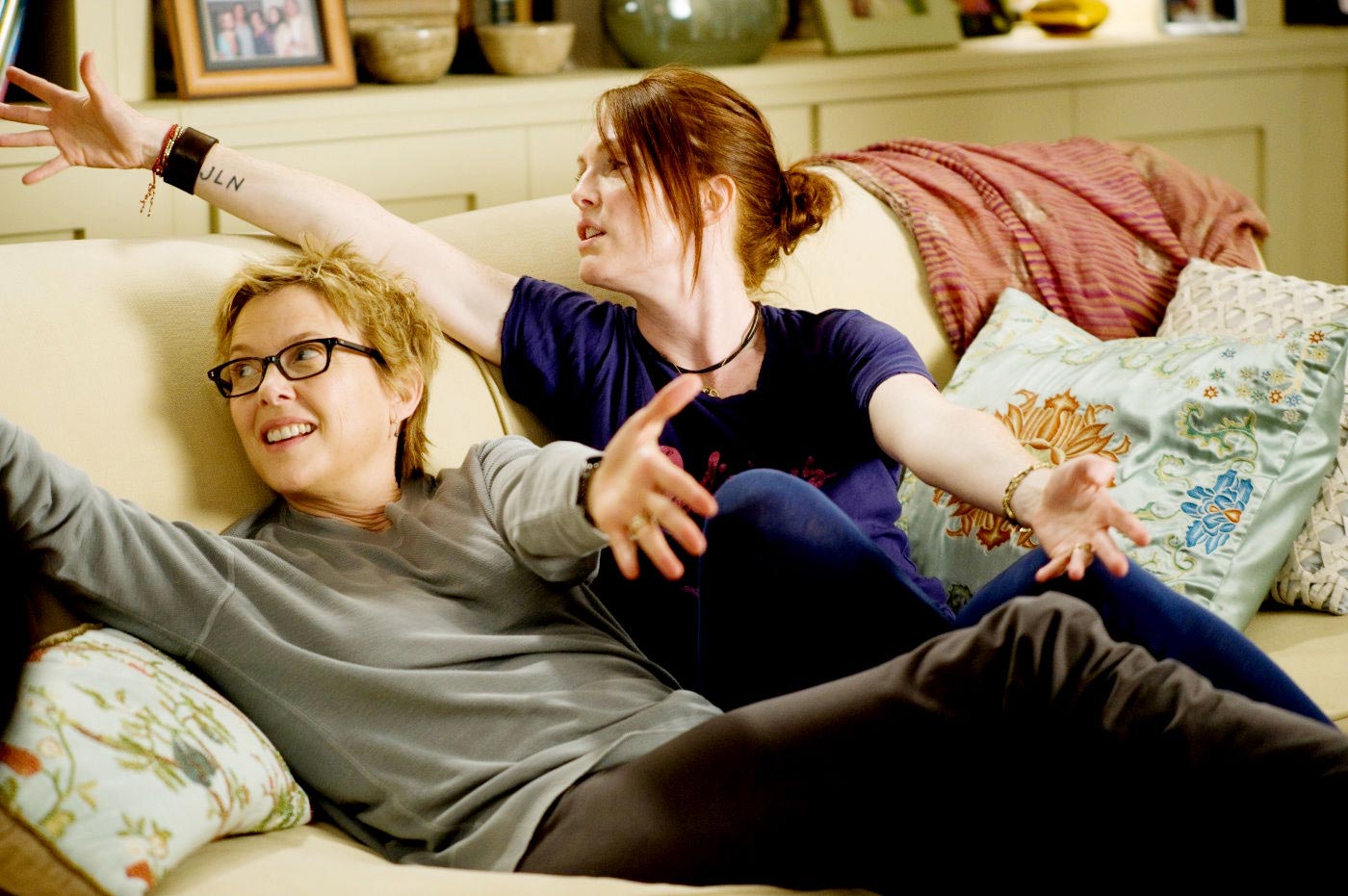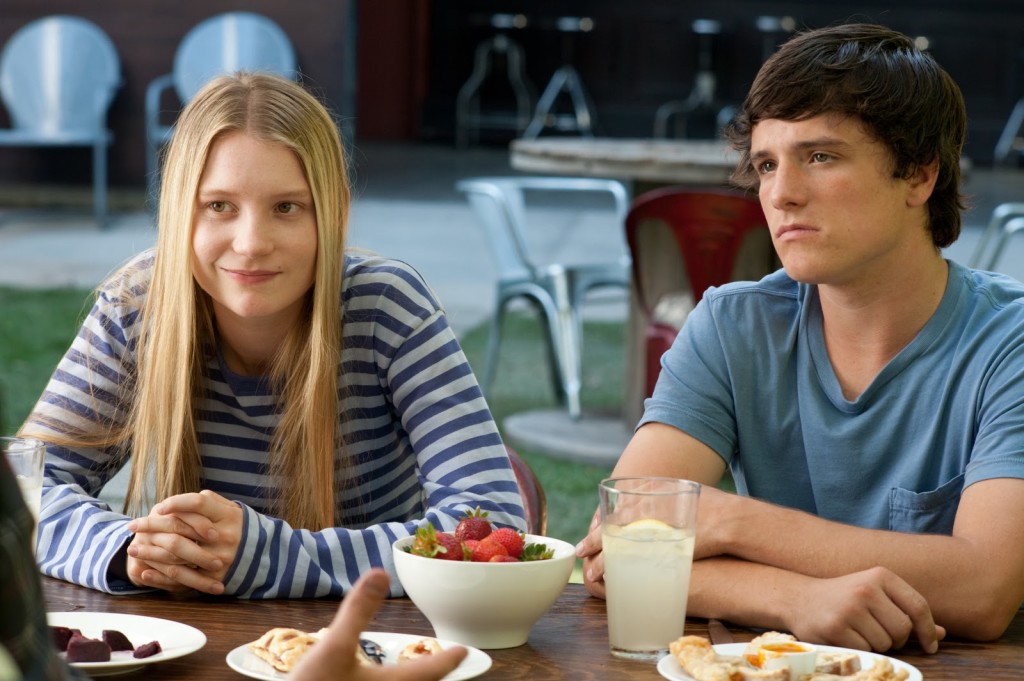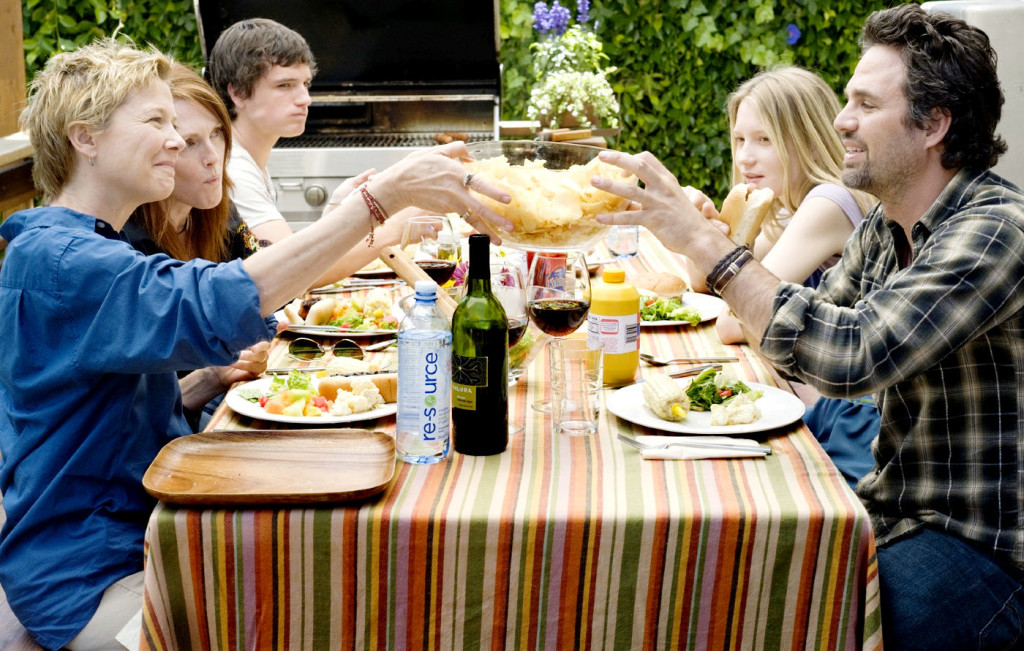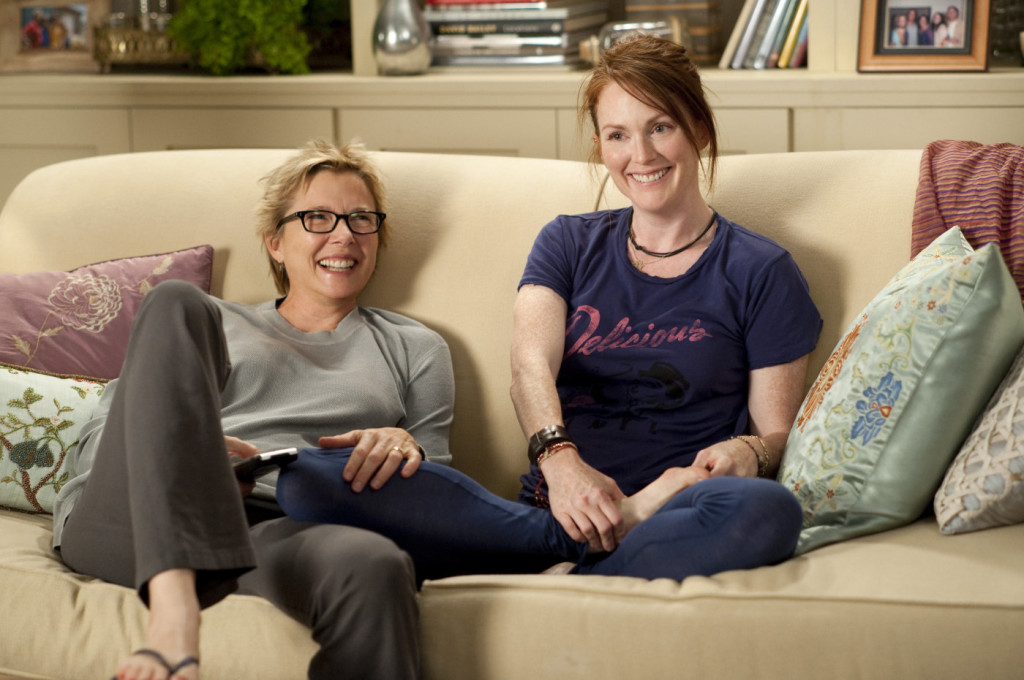In June 2013, history was made when the US Supreme Court struck down Section 3 of DOMA (The Defense of Marriage Act), declaring that the law had no right to prohibit the federal recognition of same-sex marriages. This landmark decision was certainly a milestone for the LGBTQ movement; facilitating a long overdue dialogue on civil rights and marriage equality. Yet the repeal of DOMA did more than just provide a legal legitimacy to same-sex marriage— it also allowed for a crucial social inquiry into the limitations, injustices, and hypocrisies surrounding the grossly ignorant belief that homosexual couples are unfit to either wed or raise children. After all, even the topic of gay parenting has largely been ignored in mainstream filmmaking and other arenas of social representation. However, one cannot discredit the strides made with shows such as The L Word or Modern Family—even the Disney Channel has finally begun to respect LGBTQ marriage equality rights, featuring a lesbian couple in a recent episode of the show Good Luck Charlie.
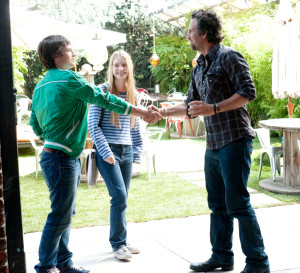 While the number of films featuring queer parents is few and far between, the box office success and critical acclaim following Lisa Cholodenko’s The Kids Are All Right (2010) were evidence that audiences indeed have an appetite for the subject matter. Starring Annette Bening and Julianne Moore, Cholodenko’s film centers on a married lesbian couple who must deal with the consequences of their children’s decision to seek out their biological father. Bening and Moore respect the intellectual authenticity of the film by embracing their roles with convincing restraint and relatable nuances: their chemistry smartly captures the tension of a couple going through a mid-life crisis, despite being madly in love. Both co-written and directed by Cholodenko, The Kids Are All Right beautifully illustrates the experiences of a couple who must navigate the trials and tribulations of marriage and child rearing—that couple just happens to be gay. Delivered in a tone of “dramedic” insight, Cholodenko’s clever story concept allows the film to effectively explore the modern day family unit, and what can happen when this domestic bliss is threatened—all the while avoiding the claustrophobia of intense melodramas. Instead, the dynamics of parenthood and matrimony are portrayed in ways that are both intimate and self-aware; with Cholodenko offering highly relevant and inventive commentary on the expansive nature of a family in crisis.
While the number of films featuring queer parents is few and far between, the box office success and critical acclaim following Lisa Cholodenko’s The Kids Are All Right (2010) were evidence that audiences indeed have an appetite for the subject matter. Starring Annette Bening and Julianne Moore, Cholodenko’s film centers on a married lesbian couple who must deal with the consequences of their children’s decision to seek out their biological father. Bening and Moore respect the intellectual authenticity of the film by embracing their roles with convincing restraint and relatable nuances: their chemistry smartly captures the tension of a couple going through a mid-life crisis, despite being madly in love. Both co-written and directed by Cholodenko, The Kids Are All Right beautifully illustrates the experiences of a couple who must navigate the trials and tribulations of marriage and child rearing—that couple just happens to be gay. Delivered in a tone of “dramedic” insight, Cholodenko’s clever story concept allows the film to effectively explore the modern day family unit, and what can happen when this domestic bliss is threatened—all the while avoiding the claustrophobia of intense melodramas. Instead, the dynamics of parenthood and matrimony are portrayed in ways that are both intimate and self-aware; with Cholodenko offering highly relevant and inventive commentary on the expansive nature of a family in crisis.
Before I continue I must emphasize that while The Kids Are All Right centers on a lesbian marriage, it isn’t necessarily about one. Rather, it’s about marriage itself: an institution with challenges and hardships that are universally relatable. Jules (Moore) and Nic (Bening) have been happily married for over 20 years, living in a gorgeous home in the rather chic suburbs of Los Angeles. They are raising a boy named Laser (Josh Hutcherson) and a girl named Joni (Mia Wasikowska)—with each mother giving birth to one child using the same anonymous sperm donor. A straight-A student about to leave for college, Joni (who, needless to say, is named after Joni Mitchell) is a shy, mature and inquisitive teenager who absorbs the world around her with astute skepticism. Joni’s unyielding curiosity leads her to contact sperm donor Paul; a scruffy, motorcycle-riding restaurateur with a green thumb and penchant for organic foods. Mark Ruffalo effortlessly captures the hip, casually progressive demeanor of Paul; whose laid-back approach to life contrasts with the brittle and uptight Nic. It comes as no surprise that Joni and Laser find him intriguing. But how do Nic and Jules respond to the news of this recent familial intrusion? In theory, they seem accepting so long as they get to meet Paul for themselves—but in actuality they’re far from thrilled, (‘disturbed’ might be a better word). “I get it, all right—he’s their biological father. But it still feels really shitty, like we’re not enough or something,” proclaims Nic.
While the issue of gay marriage has become a topic of ideological contention and cultural strife in our society, it is also an existing social fact—and one of the features that makes The Kids Are All Right work so well is that it acknowledges this fact and avoids those homocentric clichés and “after school special” lessons typically found in gay cinema. Removed from homophobic hysteria, Joni and Laser are bright, sensible, well-rounded teenagers whose responsible and devoted parents adore them—their family is the picture of normalcy. Simply put, Kids begins with the depiction of a stable and healthy (albeit imperfect) home environment and in that regard, the film immediately establishes itself as a subtle yet effective rebuttal of all those gay marriage nay sayers. Sure, Nic and Jules are a bit of a mess and perhaps experiencing a slight “midlife malaise” (but which couple doesn’t?): as the breadwinner of the household, Nic is a slightly nagging control freak and obsessive worrier who works in a hospital as an OBGYN. She can’t help but micromanage in an effort to maintain a sense of structure both in her professional and personal life—and yes, she does enjoy her red wine to take the edge off. Nic is more of the mind and Jules is more of the heart; because unlike her wife, Jules is more of a free-spirit. Unfocused, restless and a bit flaky, she has dabbled in various careers while taking care of the children and now plans to go into landscape design. Or as she tries to explain amidst a slue of stutters: “there’s a gardening component, but it’s really about creating unique, eco-friendly spaces that blend with the surrounding environment. Do you know what I mean?” “Most definitely,” replies Paul at their meet and greet barbecue; employing that hesitant intonation, crooked smile, and slightly dangerous charm implicit in Ruffalo’s character. Oh no.
Everything about Kids—from the exactly measured and honest performances, to the convincingly bourgeoisie prattle of the dialogue—seems to hit the mark in a way that is neither ostentatious nor forced. Yes, this film is a comedy; but Cholodenko smartly employs a light tone of slightly satirical wit that truly adds dimension and a novel sensitivity to the imperfections of her characters. Bening and Moore in particular employ an impressively convincing precision to the speech patterns and habits of their respective characters, and their dynamic shines even during moments of contention. One of the greatest achievements of this film is how it showcases Cholodenko’s immense fascination with awkward social tension and interpersonal exchanges; with her camera lingering on the inflections and idiosyncrasies of her characters. Cholodenko’s knack for hazy insights, intelligent catchphrases, and social observations make for interesting conversations that seem all too familiar, sometimes uncomfortably so. Take for example the scene where Paul is meeting Nic and Jules for the first time: the glancing moments, off-beat comic timing, tactical use of silence, and instances of acute and relatable social embarrassment are enough to make the audience feel as antsy as those onscreen. Even when the characters blatantly transgress—as when Jules and Paul sleep together—Cholodenko refuses to assign a villain and a matyr. But that’s what makes The Kids Are All Right so understanding of human nature; for Cholodenko’s greatest concern lies in presenting the invisible threads that entangle people, even if those threads happen to be made of messy emotional collisions. Sure, Nic feels betrayed; but her reaction avoids any melodramatic grief or hysteria. Instead, when confronting Jules, she simply sits down—tears streaming down her face—and utters “So are you straight now?” I consider this scene to be the most heart-wrenching in the film precisely because it is pulled back: Cholodenko allows Bening’s dialogue (and in particular, that powerful line) to speak for itself because she is confident that the viewer will absorb the brevity of this exchange. We all know that sexual identity is not that straightforward, and Cholodenko recognizes that. Of course Jules isn’t straight all of a sudden, nor is she in love with Paul. Feeling lost, trapped, and neglected she turned to the only other prevalent figure in her children’s life. Yes, it was a moment of selfish weakness, but who are we to judge?
“What Cholodenko, at her sneakiest, is doing here is to ask what occurs when a moral elasticity-as that of Paul’s character-encounters sturdier, more traditional forms of living” (Anthony Lane). When we first meet Paul, he is a sympathetic outsider that grants insight on what the family members lack; and consequently Joni and Laser connect with him in ways that they can’t with their moms. There is no doubt that they regard Paul as a confidante, but what does that imply about Nic and Jules as parents? Does this mean that Cholodenko views homosexual parenting as being inadequate since it lacks the parental figure of the opposite gender? Not at all, in fact Cholodenko’s commentary is quite the opposite. Rather, she is using a delicate coat of satire and farce to illustrate just how disruptive an unattached heterosexual person can be to the domestic order of a family with gay parents. Just because that individual provides the sperm (or egg) does not mean they are entitled to step in and serve as a pseudo parental figure. Because by the end, Paul manages to cause trouble for the family, and in no way does this go unnoticed by the teenagers whose ultimate love and loyalty lies with their mothers. Indeed, they sought a friendship with Paul but in the end they got more than they bargained for, and they too feel betrayed by the emotional chaos brought on by this feckless person whom they trusted. I agree with critic Anthony Lane’s assertion that Cholodenko’s approach is “sneaky”, because although she highlights the toxic consequences of such a domestic disturbance she does so in a neutral, sparse and empathetic manner. There is no condescending judgment, or overarching lesson depicting the gay parents as invincible heroes and the outsider as a villain. If anything, Nic and Jules are just as eccentrically flawed at the film’s conclusion, and even Paul can be regarded as more of a scapegoat than a demon. But if anything, that’s what makes The Kids Are All Right resonate so well: it doesn’t suffocate you with heartwarming clichés and political platforms. Instead, what Cholodenko does is weave a modern, sensitive, complex and multi-faceted tale of the imperfections, contradictions and misunderstandings that exist within and between people. Nic and Jules are merely one of a myriad of couples experiencing a rough patch—yet despite these hiccups, the kids are all right.

